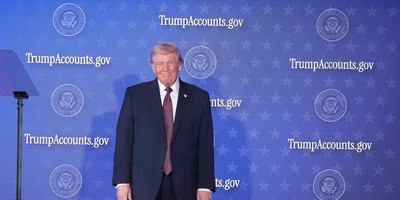Advertisement
Cheney replied that the end -- to "get the guys who did 9/11" and "avoid another attack against the United States" -- justified the means. "I have no problem as long as we achieve our objective," he said.
Charles Fried, a Harvard law professor who served as solicitor general during the Reagan administration, and his son, Gregory, a philosophy professor at Suffolk University, offer a bracing alternative to Cheney's creepy consequentialism in their 2010 book, "Because It Is Wrong." They argue that torture is wrong not just when it is inflicted on innocents -- and not just when it fails to produce lifesaving information -- but always and everywhere.
That claim is bolder than it may seem. As the Frieds note, most commentators "make an exception for grave emergencies," as in "the so-called ticking-bomb scenario," in which torturing a terrorist is the only way to prevent an imminent explosion that would kill many people. "These arguments try to have it both ways," they write. "Torture is never justified, but then in some cases it might be justified after all." The contradiction is reconciled "by supposing that the justifying circumstances will never come up."
The Senate Intelligence Committee's report released last week, for instance, argues that the CIA's brutal methods did not yield valuable information that could not have been obtained through other means. In fact, it says, waterboarding and the other "enhanced interrogation techniques" were often counterproductive, eliciting false information or discouraging cooperation.
Recommended
Advertisement
Maybe that's true, but it's awfully convenient. If torture is never useful, eschewing it entails no trade-offs. It is a cost-free commitment.
The Frieds' argument requires no such assumption. They acknowledge that torture may save lives but reject it anyway, arguing that "there are things worse than death."
They offer an example that most people would consider beyond the pale: Suppose the most effective way to elicit lifesaving information from a terrorist is to torture his child. Is that tactic morally acceptable, provided the payoff is big enough?
If not, then certain forms of torture are absolutely wrong. The Frieds go further, contending that "innocence and guilt are irrelevant to torture," which desecrates "the image of God" or, in the secular version of the argument, "the ultimate value of the human form as it is incorporated in every person."
The Frieds argue that we lose our humanity by denying someone else's, by treating him as an animal to be beaten into submission or an object to be bent or broken at will. "To make him writhe in pain, to injure, smear, mutilate, render loathsome and disgusting the envelope of what is most precious to each of us," they write, "is to be the agent of ultimate evil -- no matter how great the evil we hope to avert by what we do."
That is just a taste of the Frieds' argument, which deserves to be considered at length. It surely will not convince Dick Cheney, but it goes beyond mere squeamishness in an attempt to articulate the moral intuition underlying legal bans on torture and other forms of degrading treatment.
Advertisement
If the Frieds' reliance on the concept of sacredness strikes you as superstitious, consider what can happen when nothing is sacred. During a 2005 debate, John Yoo, who helped formulate the legal rationale for the interrogation techniques the Frieds condemn, was asked whether encouraging a prisoner's cooperation by crushing his child's testicles would be legal, as well. Yoo replied that "it depends on why the president thinks he needs to do that."

























Join the conversation as a VIP Member